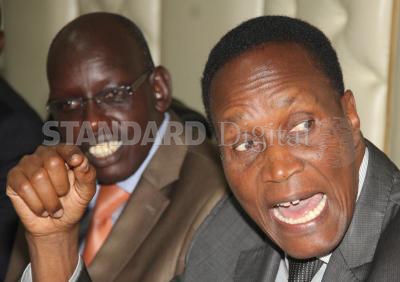×
The Standard e-Paper
Stay Informed, Even Offline

NAIROBI: Parents can now breathe a sigh of relief after the government released fees guidelines for public secondary schools.
And as Education Cabinet Secretary Jacob Kaimenyi issued the guidelines, Deputy President William Ruto warned schools against contravening the directive.